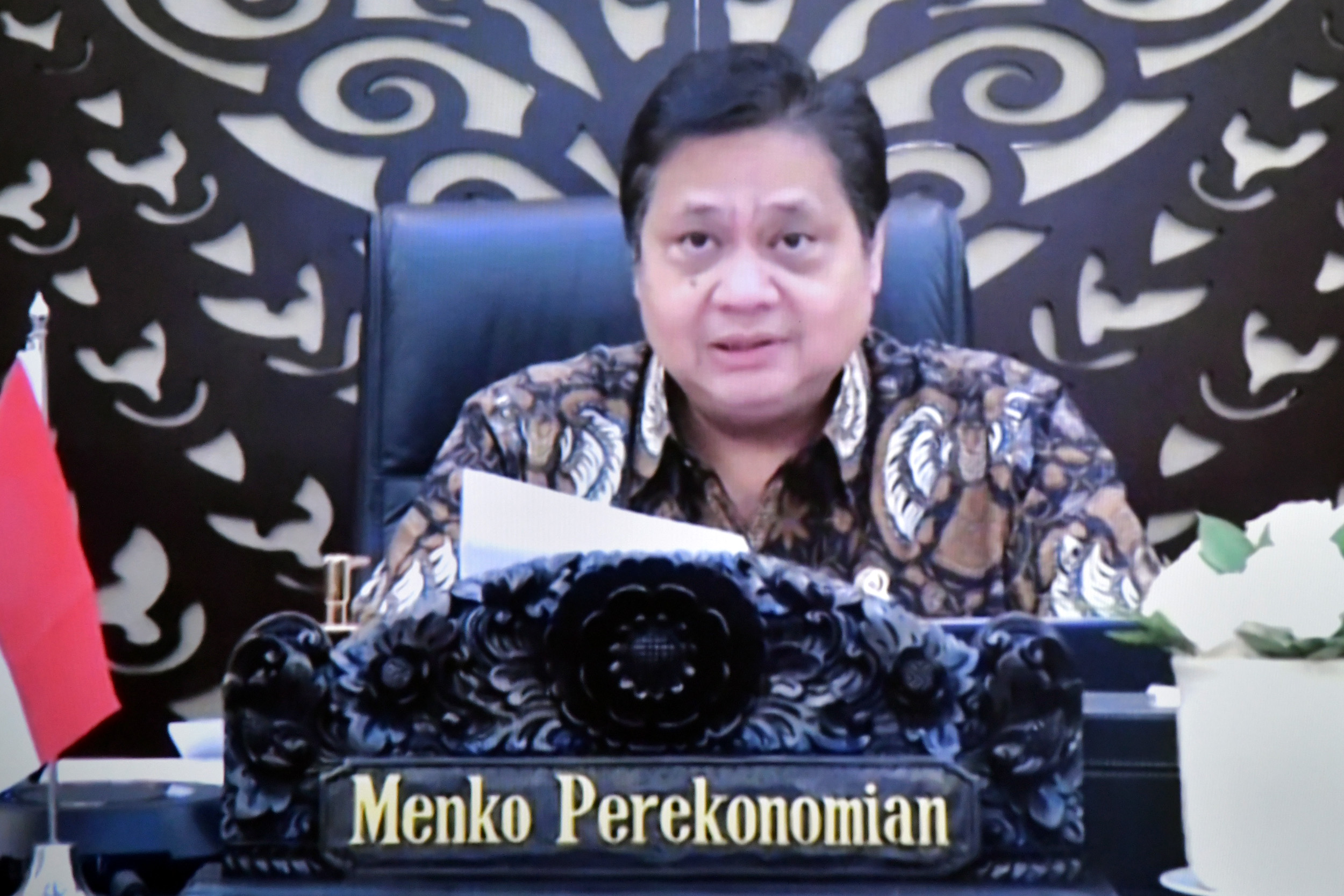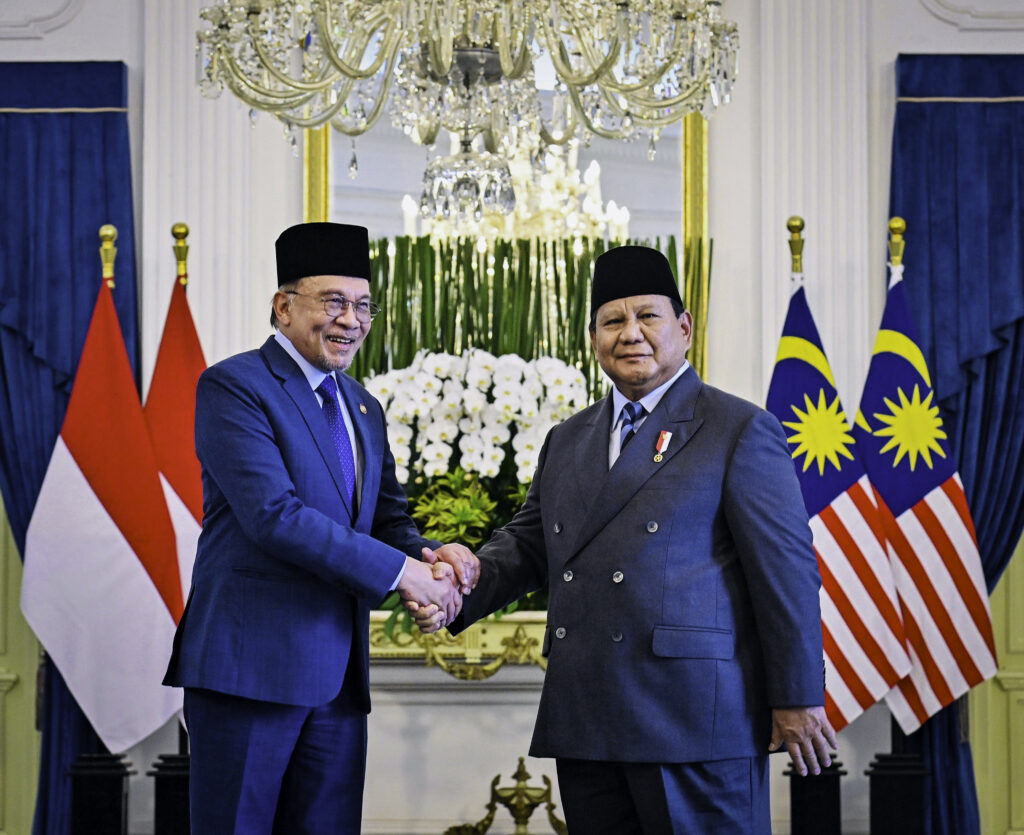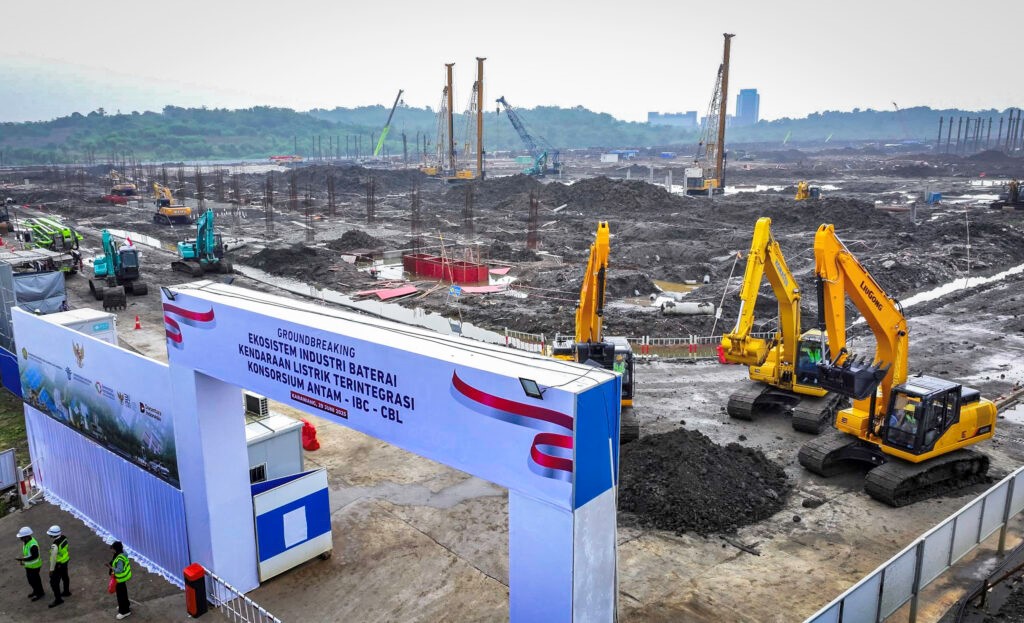Coordinating Minister: Gov’t Provides Old-Age, Unemployment Benefits for Workers

Coordinating Minister for Economic Affairs Airlangga Hartarto. (Photo by: PR of Cabinet Secretariat/Rahmat)
The Government is currently implementing old-age benefits (JHT) and unemployment benefits (JKP) programs to protect workers, Coordinating Minister for Economic Affairs Airlangga Hartarto has stated.
“The JHT is designed as a long-term program to ensure the availability of funds for workers when they are no longer productive due to (entering) retirement age, having permanent total disability, or passing away,” Airlangga said on Monday (02/14).
The Coordinating Minister said that on February 2, the Government had issued Regulation of Minister of Manpower Number 2 of 2022 on Procedures and Requirements for Old-Age Benefits Disbursement.
“The benefits of the JHT are the accumulation of the contribution and revenue (and) other benefits that can be disbursed before retirement with certain conditions,” he said.
The conditions are that the participants must have fulfilled a minimum membership period of 10 years and the value that can be disbursed is a maximum of 30 percent of the total JHT value for housing or a maximum of 10 percent for other than housing needs.
“With the issuance of Regulation of Minister of Manpower Number 2 of 2022, the value of accumulated contribution and benefits will be higher when the participants reach retirement age, namely at the age of 56,” he said, adding that in addition to the JKP, the Government also provides protection for workers in the forms of severance pay, service award money, and compensation rights.
Airlangga explained that formal workers are also protected by the JKP, which is a new social security program mandated by the Job Creation Law to protect laid off workers so that they can maintain their standard of living before re-entering the labor market.
“The JKP implementation is effective as of February 1, 2022. The JKP is a short-term protection for workers because they get immediate benefits when they stop working. The implementation of JKP program does not reduce the benefits of the existing social security program. I repeat, the JKP does not reduce the existing social security benefits,” Airlangga said.
The JKP program contribution, he added, will not burden workers and employers because the JKP contribution, namely 0.46 percent of wages, is borne by the Central Government.
The Coordinating Minister explained that laid off workers are entitled to JKP benefits in the form of cash of 45 percent of wages from the 1st month to the 3rd month, and 25 percent of wages from the 4th month to the 6th month.
In addition, the laid off workers will also get benefits in the forms of access to labor market information and job guidance as well as job competency training through training institutions run by the Government, private sector, and companies.
Airlangga further said that the Government also provides social protection for informal workers through the Pre-employment Card program. The benefits are in the forms of training costs assistance for the development of work competencies including skills, upskilling, reskilling and entrepreneurship.
The total amount of assistance is Rp 3.55 million per person, consisting of training costs of Rp 1 million, post-training incentives of Rp 2.4 million, plus survey incentives of Rp 150,000.
“Starting today, Minister of Manpower will disseminate detailed provisions of the policy. The Government will always protect workers and the people in all sectors as mandated by our Constitution,” Airlangga remarked. (TGH/UN) (RI/MUR)








